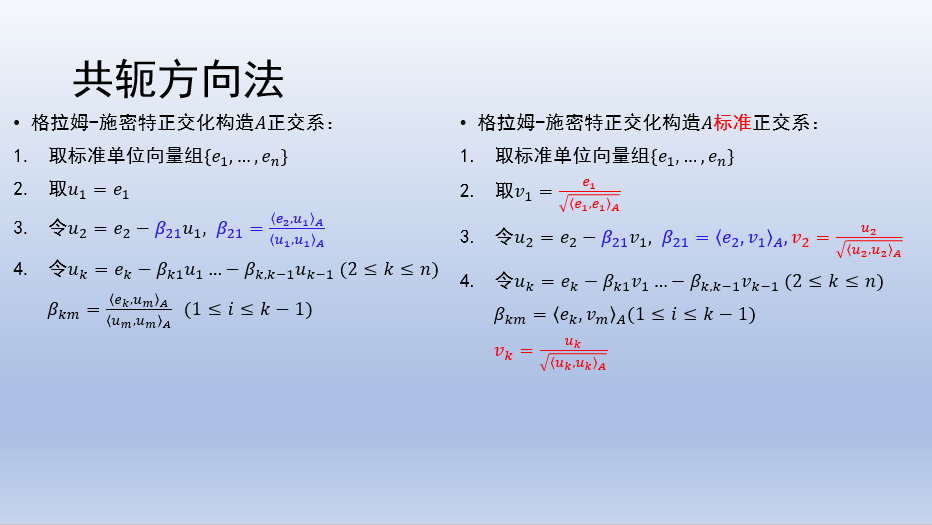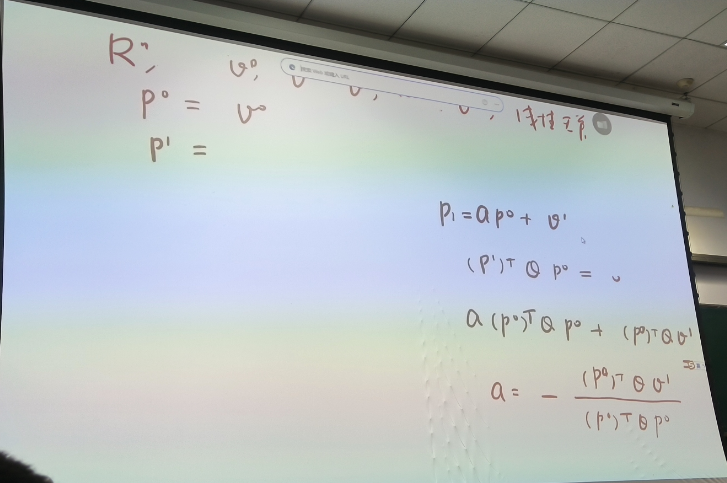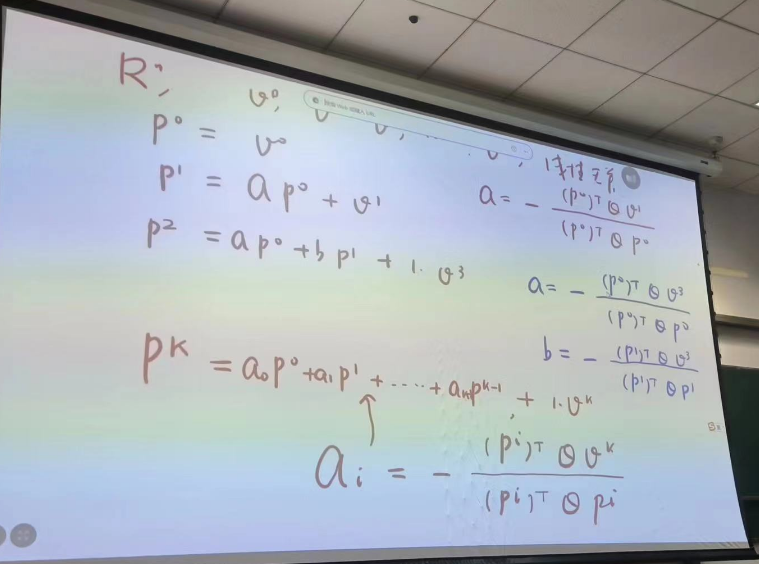共轭梯度法
2023年10月22日大约 1 分钟
共轭梯度法
需要注意共轭梯度法对于n为矩阵,最多只需要n步就可以迭代到最优解,后跟梯度下降进行对比。

在最优化课程讲到了他的证明。

现在解决下面问题:
import numpy as np
import pandas as pd
# 共轭梯度法
def conjugate_gradient(A, b, x0, tol=1e-6, max_iter=1000):
x = x0
r = b - np.dot(A, x)
p = r
rsold = np.dot(r, r)
table = []
headers = ["iterations", "x"]
for i in range(max_iter):
Ap = np.dot(A, p)
alpha = rsold / np.dot(p, Ap)
x = x + alpha * p
r = r - alpha * Ap
rsnew = np.dot(r, r)
table.append([i+1, x])
if np.sqrt(rsnew) < tol:
print("Conjugate Gradient converged in", i + 1, "iterations.")
break
p = r + (rsnew / rsold) * p
rsold = rsnew
df = pd.DataFrame(table, columns=headers)
df=df.to_string(index=False)
print(df)
return x
# 梯度下降法
def gradient_descent(A, b, x0, learning_rate=0.01, tol=1e-6, max_iter=10000):
x = x0
residual = np.dot(A, x) - b
iter_count = 0
table = []
headers = ["iterations", "x"]
while np.linalg.norm(residual) > tol and iter_count < max_iter:
gradient = np.dot(A.T, residual)
x = x - learning_rate * gradient
residual = np.dot(A, x) - b
iter_count += 1
table.append([iter_count, x])
if iter_count == max_iter:
print("Gradient Descent did not converge within the maximum number of iterations.")
else:
print("Gradient Descent converged in", iter_count, "iterations.")
df = pd.DataFrame(table, columns=headers)
result_df = pd.concat([df.head(3), pd.DataFrame([["...", "..."]], columns=headers), df.tail(3)]).reset_index(
drop=True)
result_df = result_df.to_string(index=False)
print(result_df)
return x
# 示例用法
A = np.array([[4, -2, 0], [-2, 2, -1], [0, -1, 5]])
b = np.array([0, 3, -7])
x0 = np.array([0, 0, 0])
print("Conjugate Gradient Method:")
solution_cg = conjugate_gradient(A, b, x0)
print("Solution:", solution_cg)
print("\nGradient Descent Method:")
solution_gd = gradient_descent(A, b, x0)
print("Solution:", solution_gd)Conjugate Gradient Method:
Conjugate Gradient converged in 3 iterations.
iterations x
1 [0.0, 0.5704918032786885, -1.3311475409836064]
2 [0.5945700329433148, 0.8895452307925329, -1.315877163088341]
3 [1.0000000000000002, 2.0000000000000004, -0.9999999999999998]
Solution: [ 1. 2. -1.]
Gradient Descent Method:
Gradient Descent converged in 3915 iterations.
iterations x
1 [-0.06, 0.13, -0.38]
2 [-0.0848, 0.21450000000000002, -0.6509]
3 [-0.089082, 0.26945600000000003, -0.844955]
... ...
3913 [0.9999991627289648, 1.999998575517787, -1.0000003235489727]
3914 [0.9999991657162858, 1.9999985806002338, -1.0000003223945741]
3915 [0.9999991686929481, 1.9999985856645468, -1.0000003212442943]
Solution: [ 0.99999917 1.99999859 -1.00000032]
